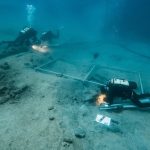ZAGREB, February 5, 2019 – The planned Slovenian-Hungarian gas interconnection has no effect on the project to build an LNG terminal on the island of Krk or on the expected lease of its capacity by countries in Croatia’s neighbourhood, the Environment and Energy Ministry told Hina on Tuesday.
“Projects that are of common interest in the EU are projects that primarily connect the energy infrastructure of EU member-countries. The interconnection between Slovenia and Hungary will connect the two countries’ gas networks and there is no direct link between it and the development of the LNG terminal on Krk and the gas to be supplied by the terminal,” officials at the ministry told Hina when asked to comment on announcements that the Slovenian-Hungarian gas interconnection would be built due to, among other reasons, the uncertain implementation of the Croatian LNG terminal.
“The planned Slovenian-Hungarian interconnection will be implemented after the LNG terminal becomes operational and it does not affect the implementation of the Krk terminal project or its expected lease by neighbouring countries in the coming period,” the ministry official said.
They recalled that the gas interconnection between Croatia and Slovenia at Rogatec, apart from transporting gas from Slovenia to Croatia, also enabled transport from Croatia to Slovenia.
Hungary and Slovenia have applied jointly for EU funding to build an interconnection linking the two countries’ gas networks, which would enable Hungary to import liquefied natural gas from Italy, Hungarian Foreign Minister Peter Szijjarto has told the Hungarian news agency MTI.
Given the current uncertainty regarding the construction of the LNG terminal in Croatia, the fact that the price offered by Croatia is markedly above the market price and the uncertainty as to when U.S. and Austrian gas companies will be able to start with gas exploitation on Romanian gas fields at sea, Hungary must establish new gas supply routes, said Szijjarto.
One scenario envisages the import of liquefied gas via Italian ports, he said, but noted that the infrastructure that would enable Hungary to buy liquefied gas directly from Italy had still not been established.
That is the reason why Hungary has signed the agreement with Slovenia, Szijjarto said, adding that connecting the two countries’ gas networks would enable Hungary to import gas from Italy. The Hungarian minister also said that talks were underway on the necessary capacity of the interconnection to link the two countries’ gas networks. The European Council is to make a decision on the matter in the spring, he added.
The Croatian government last week made a decision to finance the first stage of the floating LNG terminal on Krk, whose total value is estimated at 234 million euro.
The European Commission has approved grants for the project in the amount of 101.4 million euro since the project is on the EC’s list of projects of common interest. The government’s decision was welcomed by US Ambassador Robert Kohorst.
More news on the LNG terminal on Krk can be found in the Business section.








